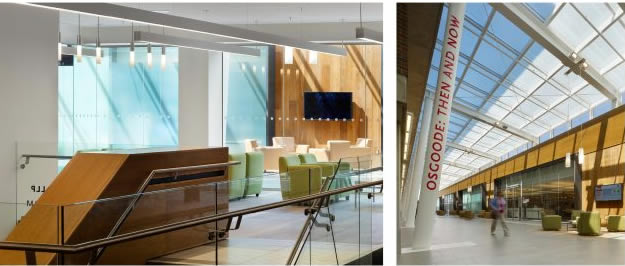
OSGOODE INTERNSHIP
Between 2017 and 2021, 12 people from Latin America completed internships at York University’s Osgoode Hall Law School in Toronto, Canada as part of the project on access to justice. Each of them has positioned themselves as key stakeholders in judicial operation instruction and as experts on the topics that they explored during their internship.
The internship process achieved the goal of integrating the Canadian experience into innovative civil procedure approaches in the region, creating pillars of future justice reforms developed in each of those regional realities.
The cases of Carolina Ahumada, Kamla Jo Braithwaite, Larissa Pochmann, Santiago Pereira, Florencia Ratti and Arturo Onfray are worth noting, as they contributed in a valuable way, on the region through the dissemination of their scientific essays and practical application of the knowledge that they acquired through their internship experiences
Exchanges with Canadian Exports
In the context of its work on Latin American civil justice reform, JSCA believes that it is very important to observe the experience of countries like Canada that have made notable progress in this area. One such example is the state of Quebec. As such, one of the strategies used in the project was linked to organizing activities in Latin American countries that featured presentations by Canadian experts on the topic of interest or the discussion that is taking place in the countries of the region.
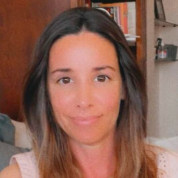
Carolina Ahumada, the experience at York University allowed me to get to know many of the cultural and institutional aspects of Toronto, through interviews and visits to small claim courts and institutions dedicated to generating legal information for citizens (CLEO). The idea of self-litigation is at the center of the discussions on access to justice and the different programs and studies have been developed based on this reality, which marks a very different starting point from that of our region.
The proposals and initiatives that emerged from this research experience are focused from the paradigm of community legal education, innovation, self-litigation and above all, the development of proposals that reverse the traditional view of lawyers to start working in a citizen-centered perspective.
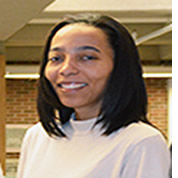
For her part, Kamla Jo Braithwaite worked with the Trinidad and Tobago Judicial Branch, specifically the Judicial Education Institute (JEITT). She was able to conduct research related to her internship in Canada once she completed the program. Kamla wrote to publications at the Institute in order to train judicial system operators in Trinidad and Tobago. The first was an article titled “Analysis of the judge’s role in the 1998 civil procedure rules.” In it, she analyzes the judge’s role in hearings and describes ideas such as increased flexibility and increased leadership by judges.

Larissa Pochmann was able to strengthen her role as a trainer of judicial operators thanks to her participation in the Osgoode internship program in 2018. After her internship, Larissa increased her training activities, holding courses for judicial operators in which she expanded on the concepts that she analyzed in Canada. She also developed projects and research related to the report that she submitted at the end of her internship at Osgoode. One of these was selected for the Max Planck Summer School in Luxemburg in the area of Procedure Law.
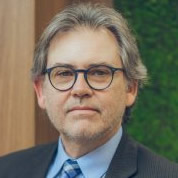
Santiago Pereira, the Director of the Applied Procedure Law Graduate Program and master’s degree program in Procedure Law and Litigation at Universidad de Montevideo, presented on “Civil Procedure Reform from the Perspective of Advocacy” during a webinar on civil procedure reform in Paraguay organized by JSCA and GAC. He described some of his experiences related to proportionality in Canada. Pereira also served as a trainer in the Inter-American Training Program on Civil Justice Reform, teaching a module on proportionality in civil proceedings and analyzing ways to increase flexibility and proportionality based on lessons learned in Canada. During the Certificate Program on Hearing Management Skills for federal judges in Mexico co-organized by JSCA and the Mexican Federal Judiciary Council’s Federal Judicial Training School, Santiago taught the module “Proportionality and Flexibility in Civil Proceedings.”

Florencia Ratti, my experience at Osgoode Hall as an intern at the Justice Center of the Americas had a great impact on my training in the methodology and techniques for the application of judicial precedent, topics that I have researched over the last few years. I was able to experience firsthand the practical training that students receive in the common law legal tradition, as well as to access the most relevant Canadian academic production on the subject. The combination of attending classes as a listener and interviewing professors and judges (including an interview with former Supreme Court Justice Frank Iacobucci) was instrumental in immersing me in the legal culture that underlies the use of precedent both in university teaching and in the courts.

Arturo Onfray. Osgoode Hall Law School enjoys great and well-deserved prestige. My internship there allowed me to discover a group of academics interested in civil procedural law and issues related to the administration of justice, among whom I would like to highlight Professor Trevor Farrow and Professor Julie Mathews. Their kind guidance, as well as the review of the Faculty’s databases and suggested social organizations, allowed me to notice important developments in the field of civil procedural studies and in the field of civil justice reform, including novel perspectives. One of the topics that caught my attention was the implementation of experiences in legal education by organizations such as Community Legal Education Ontario, including the use of new technologie
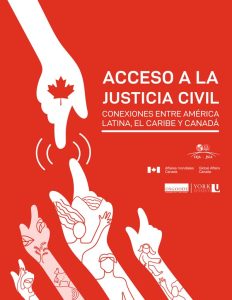
In 2018, six research projects developed by the interns who visited Osgoode were published. They focus on ideas and projects that could be adapted to the realities of the countries of the region.
These initiatives have had an impact in the authors’ countries of origin, eliciting solid responses from civil society and the active participation of other institutions for their initial implementation and long-term sustainability.
Related information:
